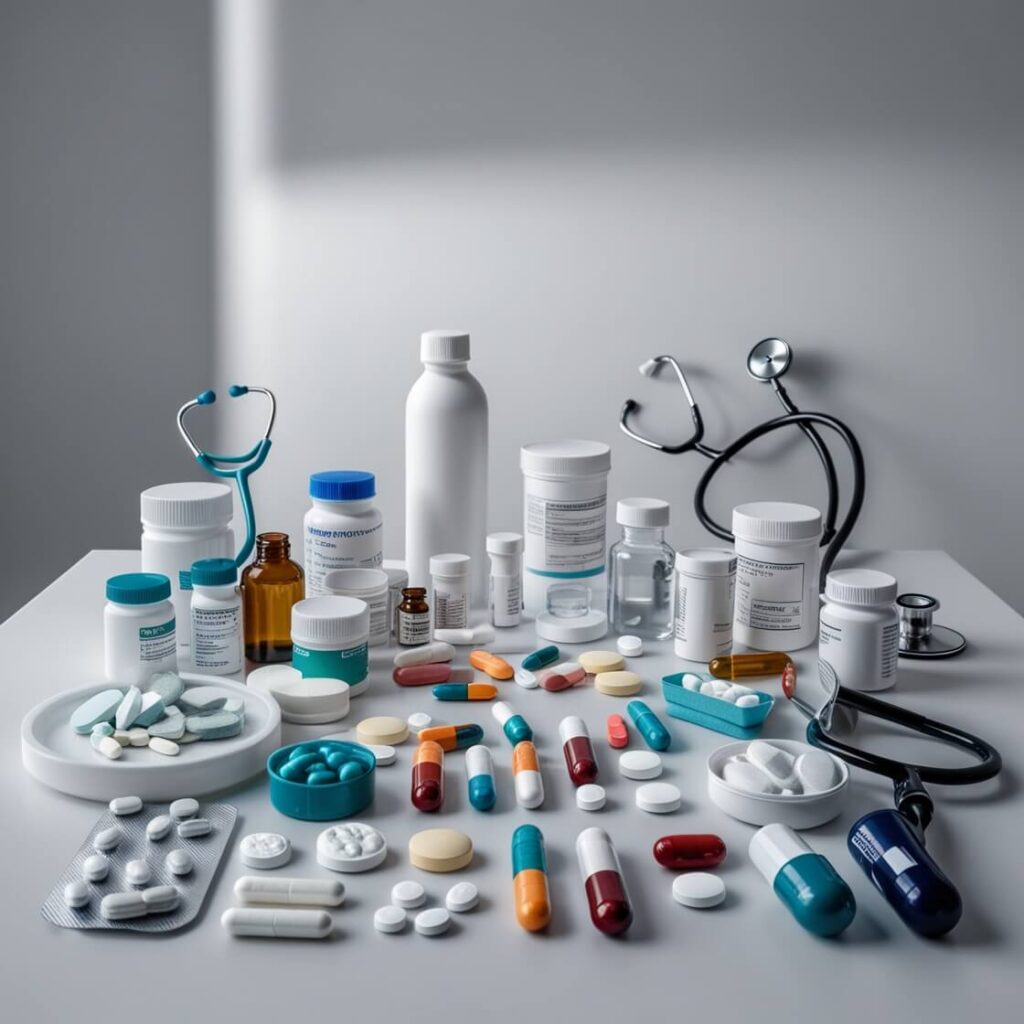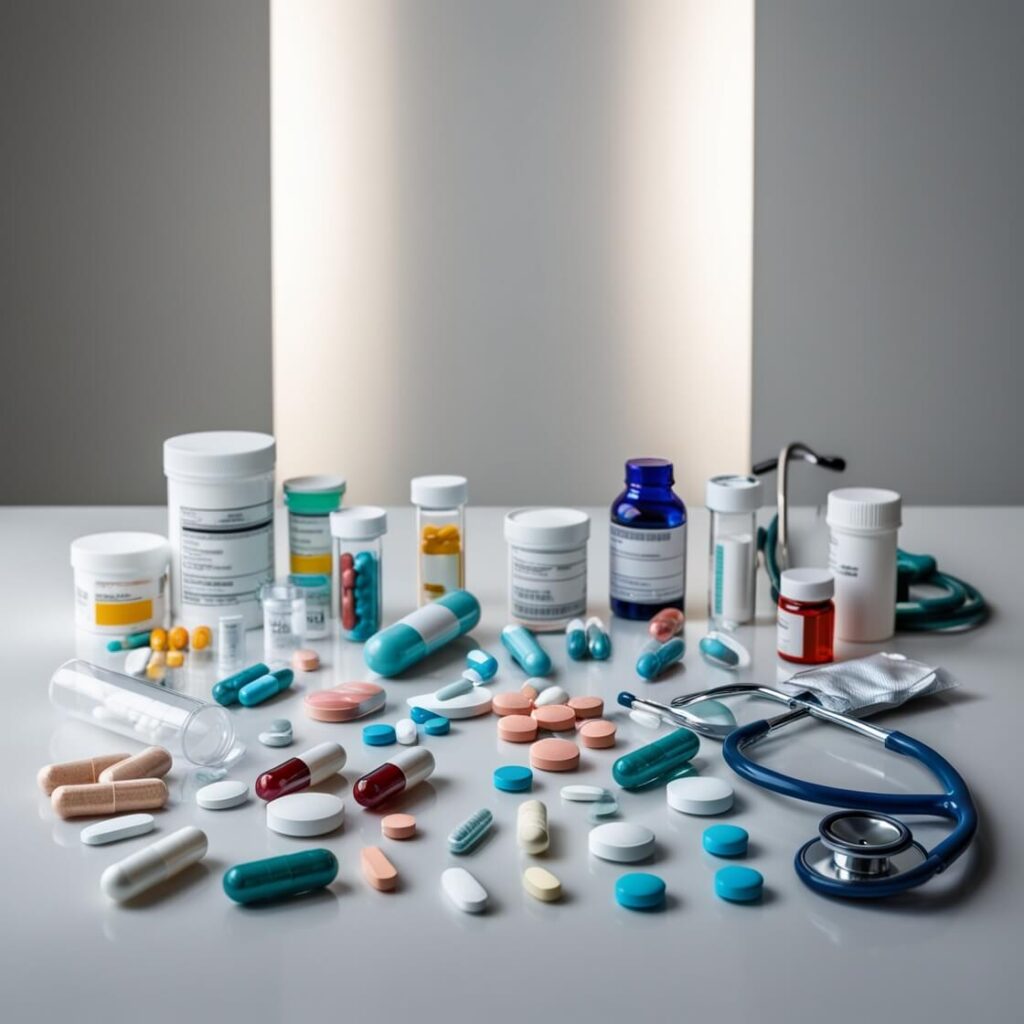When it comes to keeping our families safe, medication safety is often a crucial yet overlooked area. With the growing number of prescription and over-the-counter medications used in households, understanding how to manage and store these substances safely is essential. As parents, it’s our responsibility to ensure that medications are used properly to avoid potential risks and ensure the well-being of our loved ones.
In this guide, we’ll walk you through essential medication safety practices, from proper storage and administration to keeping medications out of reach of children. With these tips, you can manage medications effectively and protect your family from potential dangers.

1. Understanding the Risks
Before diving into practical tips, it’s important to understand why medication safety is so critical. Here are some risks associated with improper medication management:
- Accidental Ingestion: Children are naturally curious and may accidentally ingest medications if they are not stored securely. This can lead to serious health issues or poisoning.
- Incorrect Dosage: Misreading labels or misunderstanding dosage instructions can result in giving too much or too little medication, which can be harmful.
- Drug Interactions: Combining medications improperly can lead to dangerous interactions that can affect health and safety.
- Expired Medications: Using medications past their expiration date can reduce their effectiveness or cause adverse reactions.
2. Safe Medication Storage
Proper storage is key to preventing accidents and ensuring that medications remain effective. Here’s how you can store medications safely:
2.1 Store Out of Reach of Children:
- High Cabinets: Keep medications in high cabinets or locked drawers where children cannot access them. Avoid storing medications in easily reachable places like countertops or low shelves.
- Childproof Containers: Use child-resistant packaging when available. While no container is entirely childproof, these can provide an additional layer of safety.
2.2 Temperature and Light:
- Follow Storage Instructions: Medications often come with specific storage instructions. Some may need to be kept in a cool, dry place, while others may require refrigeration. Always follow these guidelines to maintain medication efficacy.
- Avoid Moisture and Heat: Store medications in a dry place away from heat sources. Bathrooms, which can be humid, are generally not ideal for medication storage.
2.3 Secure Disposal:
- Proper Disposal: Dispose of unused or expired medications promptly. Many pharmacies offer medication take-back programs. If not available, follow local guidelines for safe disposal, such as using a drug disposal pouch or dropping medications off at designated collection sites.
- Do Not Flush: Unless instructed by the label or a doctor, do not flush medications down the toilet as this can harm the environment.
3. Accurate Medication Administration
Administering medication correctly is crucial to ensuring effectiveness and avoiding harm. Here’s how to manage this safely:
3.1 Read Labels Carefully:
- Follow Instructions: Always read and follow the medication label instructions carefully. This includes the correct dosage, frequency, and any special administration requirements.
- Double-Check: Before giving any medication, double-check the label to ensure you’re administering the correct medication to the right person at the right time.
3.2 Use Proper Measuring Tools:
- Avoid Household Spoons: Use the measuring tools provided with the medication or specifically designed for measuring medicine. Household spoons can vary in size and may lead to incorrect dosing.
- Measuring Devices: For liquid medications, use a medicine dropper or measuring cup. For solid forms, use a pill organizer or splitter if necessary.
3.3 Keep a Medication Record:
- Track Usage: Maintain a medication log or use a medication management app to keep track of dosages and schedules. This helps ensure that medications are taken as prescribed and can be useful for doctor visits.
4. Preventing Medication Errors
Medication errors can have serious consequences. Here are some strategies to minimize the risk:
4.1 Communication with Healthcare Providers:
- Inform Your Doctor: Provide your doctor with a complete list of all medications, including over-the-counter drugs and supplements. This helps prevent harmful drug interactions and ensures that your treatment plan is safe.
- Ask Questions: If you’re unsure about any aspect of medication administration, ask your healthcare provider or pharmacist for clarification.
4.2 Educate Your Family:
- Teach Children: As children grow older, educate them about the dangers of medication misuse and the importance of never taking medication without adult supervision.
- Discuss with Caregivers: Ensure that anyone who may be responsible for administering medications, such as babysitters or relatives, understands the correct procedures and storage requirements.
4.3 Avoid Sharing Medications:
- Don’t Share Prescriptions: Never share prescription medications with others, even if they have similar symptoms. Medications are prescribed based on individual health needs and conditions, and sharing can lead to misuse or adverse reactions.

5. Special Considerations for Different Age Groups
Different age groups have specific needs when it comes to medication safety:
5.1 Infants and Young Children:
- Dosage Precision: Be extra cautious with dosage, as even small errors can be significant in young children. Use dosing tools designed for children and always follow the prescribed amounts.
- Childproof Containers: Ensure that all medications, including over-the-counter remedies, are stored securely away from children.
5.2 Older Children and Teens:
- Education: Educate older children and teens about the risks of medication misuse and the importance of following dosing instructions.
- Safe Storage: As children become more independent, reinforce the importance of keeping medications out of their reach and following safe storage practices.
5.3 Adults and Seniors:
- Multiple Medications: Seniors often take multiple medications, increasing the risk of interactions and errors. Use a pill organizer and keep a comprehensive list of all medications.
- Regular Reviews: Schedule regular medication reviews with your healthcare provider to ensure that all medications are still necessary and effective.
Related Post: Best Wearable Health Monitors For Elderly
6. Technology and Medication Management
Leveraging technology can help manage medication safety more effectively:
6.1 Medication Management Apps:
- Set Reminders: Use apps that send reminders for medication times and track adherence. These apps can help ensure that medications are taken as prescribed.
- Keep Records: Many apps allow you to keep a digital record of medications, which can be shared with healthcare providers during appointments.
- Automated Dispensing: Consider using a smart pill dispenser that automatically dispenses the correct dosage at the scheduled time. These devices can also provide reminders and track medication usage.
7. Creating a Family Medication Safety Plan
Having a plan in place for medication management can enhance safety for everyone in the household:
7.1 Develop a Plan:
- Create Guidelines: Develop clear guidelines for storing, administering, and disposing of medications. Share these guidelines with all family members and caregivers.
- Emergency Contact List: Keep a list of emergency contacts, including poison control and your child’s pediatrician, readily accessible in case of accidental ingestion or other issues.
7.2 Regular Review and Updates:
- Review Safety Practices: Periodically review and update your medication safety practices to ensure they are current and effective.
- Educate and Reinforce: Continually educate family members about the importance of medication safety and reinforce best practices.
Conclusion: Your Role in Medication Safety
Medication safety is an integral part of ensuring the health and well-being of your family. By understanding potential risks and implementing practical strategies for safe medication management, you can reduce the likelihood of accidents and ensure that medications are used effectively.
Remember, safety is an ongoing process. Regularly review your medication management practices, educate your family, and stay informed about best practices. With vigilance and care, you can protect your loved ones from the risks associated with medications and create a safer, healthier environment for everyone in your home.



